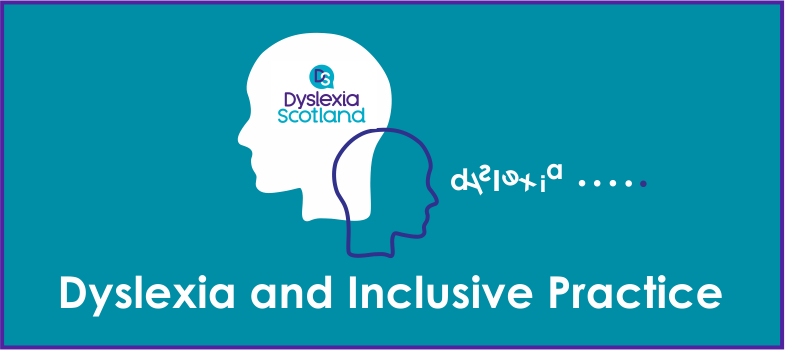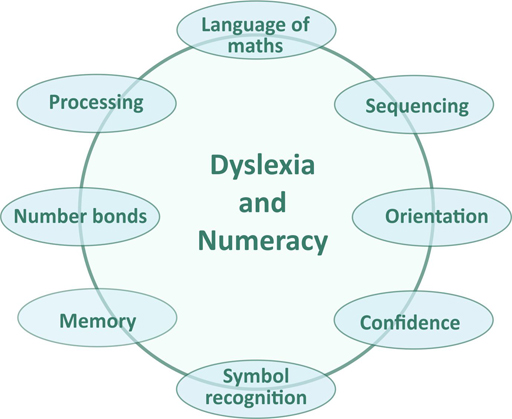3.6. Numeracy and dyslexia
What is numeracy?
The Curriculum for Excellence Numeracy across learning Principles and Practice document [Tip: hold Ctrl and click a link to open it in a new tab. (Hide tip)] states that:
Numeracy is a skill for life, learning and work. Having well-developed numeracy skills allows young people to be more confident in social settings and enhances enjoyment in a large number of leisure activities. For these and many other reasons, all teachers have important parts to play in enhancing the numeracy skills of all children and young people.
Numeracy development progresses as part of mathematics and underpins much of what is taught in this curriculum area. Learning mathematics gives children and young people access to the wider curriculum and the opportunity to pursue further studies and interests. Numeracy across learning provides essential analytical, problem-solving and decision-making skills across the curriculum.
Numeracy represents important skills for life, learning and work. It is also a life skill, which permeates and supports all areas of learning and is not just a subset of mathematics. We are numerate if we have developed:
‘the confidence and competence in using number which will allow individuals to solve problems, analyse information and make informed decisions based on calculations’.
A numerate person will have acquired and developed fundamental skills and be able to carry out number processes but, beyond this, being numerate also allows us to access and interpret information, identify possibilities, weigh up different options and decide on which option is most appropriate.
Numeracy and dyslexia
Figure 20 highlights possible correlation between dyslexia and numeracy. All of the areas can be linked to the Scottish working definition of dyslexia and consideration must be given to the potential areas of difficulty. However, it is also vital to remember the individuality of learners and that some learners may not experience difficulties with numeracy; indeed this may be an area of strength for them. The strengths and areas of difficulty are identified through appropriate collaborative and holistic assessment.
Select here to access The Addressing Dyslexia Toolkit for information on supporting numeracy difficulties.
Dyslexia and dyscalculia
Difficulties with maths may be related to dyslexia. These problems are different from, but may overlap with, difficulties caused by dyscalculia. In general, people with dyscalculia have poor ‘number sense’. Number sense is an intuitive understanding of how numbers work. Number sense is at the core of maths learning. In a similar way that a lack of phonemic awareness causes people with dyslexia to struggle with reading, a lack of number sense causes people with dyscalculia to struggle with maths concepts. If individuals don’t understand the basics about how numbers work, learning maths and using it every day can be very frustrating.
Select here to download Dyslexia Scotland’s leaflet ‘What is Dyscalculia?’
Activity 24
a.
for literacy skills
b.
however, staff would be advised to focus mainly on literacy and do not need to evaluate how good their support is for numeracy and health and wellbeing.
c.
for health and wellbeing, literacy and numeracy. This includes supporting learners who have additional support needs.
d.
for health and wellbeing, literacy and numeracy. Supporting learners who have additional support needs such as dyslexia is the responsibility of specialist staff.
The correct answer is c.
3.5. Literacy and dyslexia


